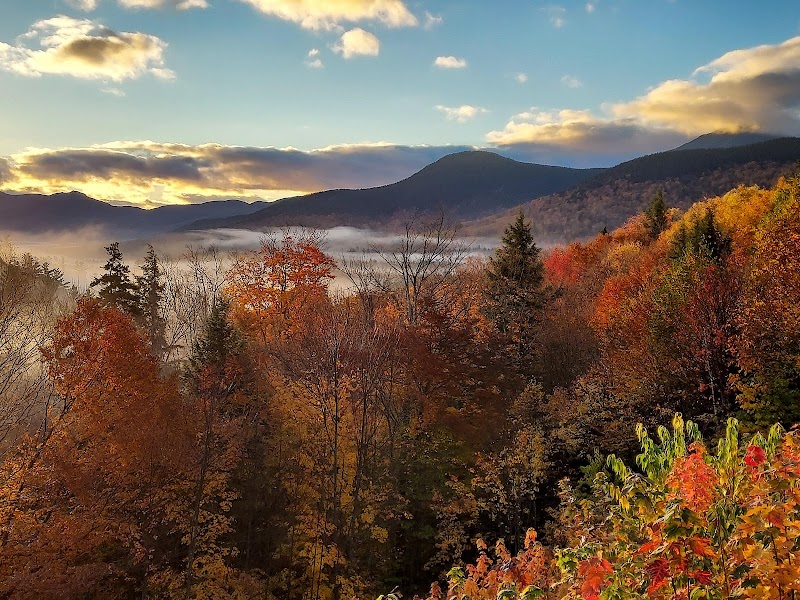
Discovering Tilton Summer Market: A Practical Guide to New Hampshire’s Vibrant Seasonal Hub
The Tilton Summer Market is where New Hampshire’s local flavor and community spirit converge every warm weekend. From fresh farm produce to handcrafted goods, it invites visitors to experience a practical, lively snapshot of regional culture and summer’s best harvest.
Arrive Early for Freshest Goods
Vendors bring the freshest produce and handcrafted items first thing. Beat the crowds and get first pick by arriving near market opening times.
Bring Reusable Bags
Sustainable packing helps carry your market finds easily while reducing waste. Markets often don’t provide bags or charge for them.
Hydrate and Wear Comfortable Footwear
Though flat and accessible, the market covers a sizable area with standing and walking. Keeping hydrated and wearing supportive shoes makes the experience smoother.
Check Weather and Dress Appropriately
The market is mostly outdoors; layers or sun protection depending on forecast keep you comfortable throughout your visit.
Discovering Tilton Summer Market: A Practical Guide to New Hampshire’s Vibrant Seasonal Hub
The Tilton Summer Market in Tilton, New Hampshire, pulses with energy every warm season weekend, offering both locals and travelers a practical gateway into the region’s culture and community spirit. Situated just off Route 3, this market is more than a collection of vendor stalls—it’s a lively meeting ground where regional farmers, artisans, and food enthusiasts gather under open skies that dare you to explore.
Stepping into the market, you’re greeted by a chorus of voices trading stories and bargains, while vibrant tents stand firm against the occasional breeze. Expect to find fresh produce harvested from nearby fields, homemade baked goods, hand-crafted jewelry, and even local art that challenges you to see the everyday with new eyes.
The terrain underfoot is the straightforward pavement of a parking lot and adjacent lawns, making the market accessible for all ages and physical abilities. This ease of access underscores the market’s role as a practical, community-centered event rather than a strenuous outdoor adventure. Still, the experience is enlivened by the sensory details that invite you to slow down and engage: the crunch of crisp apples, the sharp tang of fresh herbs, the warmth of direct sunlight balancing the occasional shade of nearby trees.
Timing your visit is key. Arrive early to avoid crowds and to catch the freshest selections—many vendors bring their best product at market open, testing the morning’s patience. Midday offers a more social atmosphere, where sampling local foods and engaging in friendly conversations deepen the connection between visitor and place.
Planning your trip here means thinking beyond just the market stalls. Nearby Tilton is a practical base, boasting restaurants and accommodations that cater to a range of travelers. While wanderers can explore short nearby hikes or visit historic sites, water bottles, comfortable walking shoes, and a sunhat remain your best companions for the market itself.
Whether you’re a vendor setting up your display or a family scouting the best blueberry pie, the Tilton Summer Market offers a tangible sense of community and place. Nature here acts more subtly—sunlight filters through the canopy, a gentle breeze nudges the tents, and the scent of earth and greenery holds the whole scene together. It’s a weekend adventure that’s fiercely local, straightforward in its appeal, and richly rewarding for those ready to engage.
In all, the Tilton Summer Market isn’t just a stop on your map; it’s a pulse point of New Hampshire’s summer, one where practical needs meet the fresh energy of a community making the most of its season.
Nearby Trips
All Adventures
Boat Charters
Water Activities
Adventures near Tilton, New Hampshire
Discover the unique and memorable adventures that make Tilton, New Hampshire special.
Frequently Asked Questions
What are the market hours for Tilton Summer Market?
Typical hours run from 9 AM to 2 PM on Saturdays during the summer months, though they can vary slightly. Early arrival is recommended to access the freshest items.
Is the market dog-friendly?
Pets on leashes are generally welcome, but it’s best to keep them close as the marketplace gets crowded and vendors offer food items.
Are there parking facilities near the market?
Yes, plenty of parking is available adjacent to the market area, making it easily accessible for visitors arriving by car.
Can I pay with credit card or cash only?
Many vendors accept both cash and cards, but carrying some cash ensures smooth transactions, especially with smaller or food vendors.
Are there local specialties unique to the market?
Yes, you’ll find New Hampshire staples such as maple syrup, fresh cheeses, local honey, and seasonal berries unique to the region’s harvest.
What COVID-19 safety guidelines are in place?
Depending on current local regulations, mask-wearing and social distancing may be encouraged, especially during peak times. Check official updates before visiting.
Recommended Gear
Comfortable Walking Shoes
Supportive shoes keep your feet comfortable while moving through vendor rows and strolling nearby streets.
Reusable Shopping Bags
Carry produce and goods sustainably, reducing plastic use while making multiple vendors easier to shop.
Water Bottle
Stay hydrated in the open-air market, especially during warm months and midday heat.
Sun Protection (Hat & Sunscreen)
The market exposes you to direct sun. Protect your skin and maintain comfort with layers of defense.
Local Insights
Hidden Gems
- "A small craft coffee booth tucked near the eastern tent cluster offers unique cold brews sourced from New England roasters."
- "Behind the main market, a quiet grassy area reveals a pavilion where local musicians sometimes perform."
Wildlife
- "Eastern Chipmunks dart through nearby shrubs, and songbirds such as sparrows fill the air with intermittent chirps."
History
"Tilton, historically a railroad and mill town, maintains this market tradition as part of its community livelihood, reflecting decades of regional agricultural heritage."
